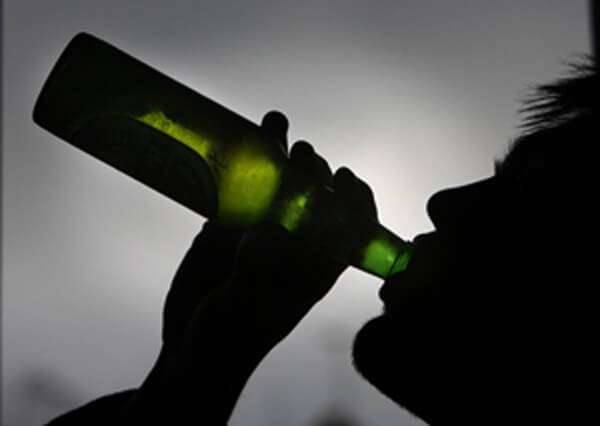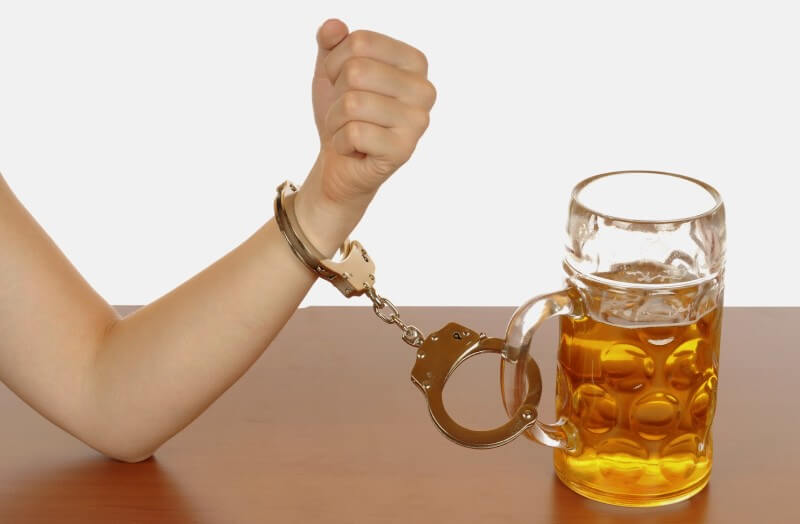Is alcohol addictive? Really? It’s not the same as other “hard” drugs, like crystal meth or heroin, which obviously are. Also, drinking alcohol is totally acceptable, and it’s legal too! Most people, even my friends and family drink without ever becoming addicts. Doesn’t this all mean that alcohol is a safer drug?
Well, no not really. These doubts and questions are the reason why it can be so challenging to address an alcohol problem. It may come as a surprise, but more than half of all people receiving treatment for a substance abuse problem are addicted to alcohol. More people need help with alcohol than with heroin, crystal meth, and cocaine together. Although alcohol is more available and acceptable than these, it is not necessarily a safer drug.
According to the National Institute of Health, nearly 90% of all U.S. Adults have had alcohol at some point in their lives. Also, approximately 15.1 million adults have a disordered relationship with alcohol, meaning they drink too heavily or too often. Drinking alcohol, and even drinking to excess, is simply part of our world, so we don’t immediately raise our alarms when we see someone drinking. Society embraces alcohol, and many cultures use drinking as a symbol of celebration. Because of this, we often allow ourselves or loved ones to go down the path of addiction without even noticing.
How do you know when your drinking has crossed a line? It can be hard to tell when it seems like everyone else drinks it too. Drinking alcohol turns into a problem when it starts to affect your life in a negative way. Sure, one or two nights of drinking might give you a hangover, or make you do a few embarrassing things, but that isn’t a true addiction. When drinking gets out of hand, all aspects of your life get tangled up with it. You don’t have a couple of bad hangovers a year, you start to have multiple every week. Drinking no longer represents an occasional celebration, it represents an escape and becomes a part of your routine. If your performance in school, work, or family life is deteriorating it’s time to take a closer look at what’s going on.
The following 11 questions are designed to help you better understand your relationship to alcohol. They will help you to tell if it resembles abuse or addiction, or is if it closer to average.
1. Do you tend to drink more than you expected to? And for longer periods of time?
2. Do you wish you could drink less, and struggle to cut down your alcohol intake?
3. Does drinking consume much of your time? In other words, do you spend a lot of your time trying to obtain, use, or recover from alcohol hangovers?
4. Do you have very strong cravings or urges to drink? Does it feel like you “need” it to get by?
5. Does drinking cause problems for you at work, in school, or in your family obligations? Does this happen frequently?
6. If drinking does cause these social and interpersonal problems for you, do you continue to drink anyway?
7. Have you given up activities that used to be meaningful for you? For example, have you quit a sport or left friendships because you don’t seem to have the time or energy anymore?
8. Do you use alcohol even when it makes your activity physically dangerous? This could be drinking while driving, using certain prescription drugs, or working with heavy machinery.
9. Do you continue to drink even after discovering that it exacerbates, worsens, or even causes other physical or mental illnesses?
10. Are you developing a tolerance for alcohol? This could show up as a decreased effect after drinking the same quantity of alcohol that you used to use, or having to drink more and more alcohol to achieve the desired level of intoxication.
11. Have you experienced withdrawal symptoms after not drinking any alcohol for a while? These include a racing heart, trouble sleeping, shakiness, sweating, fever, restlessness, nausea, or even auditory or visual hallucinations? Does more alcohol relieve these feelings?
Get Help for Alcohol Addiction Today
Based on your answers to these questions, which are based closely on the official diagnostic manual (DSM-V) used by psychologists to diagnose alcoholism, you can assess your relationship with drinking. Less than two yes’s indicates a mild problem, but anything more than that means your relationship with alcohol is dangerous and problematic. You might be addicted to alcohol. If that’s the case, it is okay, your situation is not permanent and can be repaired. There are many resources available for you, including our experts on addiction and recovery here at Breath Life Healing Centers. Please don’t hesitate to reach out for help, drinking does not have to ruin your life.














